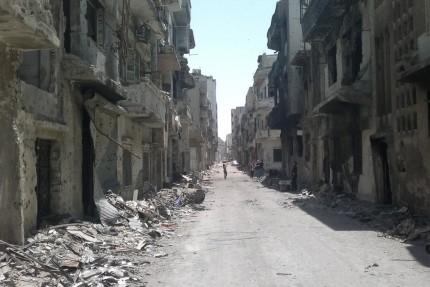
16 September 2015 – The United Nations humanitarian chief today urged the Security Council to find a political solution to end the conflict in Syria, warning its members that the fighting had created one of the largest refugee exoduses since the Second World War.
“It is civilians who continue to bear the brunt of this war,” Under-Secretary-General for Humanitarian Affairs and UN Emergency Relief Coordinator Stephen O’Brien told the Council, appealing to the 15-member body to find “a political settlement that brings an end to the crisis.”
Mr. O’Brien noted that, 18 months after the Security Council adopted resolution 2139, its demands to allow unhindered humanitarian access to the country had gone unheeded, and there had been no reduction in the appalling patterns of human rights violations.
Government forces, he said, had repeatedly attacked residential areas during between 17 and 26 August. During the last week of August, non-State armed groups had launched hundreds of shells, killing at least 20 civilians.
He warned of a “deliberate targeting of civilian infrastructure,” including water and electricity networks, as well as schools and medical facilities.
In 2014, he said, some 169 reported attacks on medical facilities occurred, and 259 medical worked were killed. Additionally, since the start of 2014, the UN has verified at least 84 attacks on or near schools.
“Today, Syria is one of the most dangerous places on earth to be a child,” said Mr. O’Brien, noting that over two million children are not in school and a further 450,000 are at risk of dropping out. He also expressed his concern that, in areas controlled by the Islamic State of Iraq and the Levant (ISIL), schools were using a curriculum designed by the terrorist group.
He also outlined the current state of humanitarian aid delivery in Syria, warning that the UN and non-governmental partners were still unable to deliver sufficient quantities of aid to the hardest-to-reach areas of the country.
Lack of funding, said Mr. O’Brien, continued to be a major challenge, and that $738 million was needed to fund essential life-saving operations until the end of 2015.
The Under-Secretary-General called on members of the Security Council to do more to demand an end to indiscriminate violence in Syria, and to ensure that humanitarian assistance is able to reach all areas of the county. Above all, he said, the Council should find a political solution to “end this nightmare” for the Syrian people.
GAIN IS PROVIDING AID TO SYRIANS WHO ARE DISPLACED WITHIN THEIR OWN COUNTRY. CLICK HERE IF YOU WOULD LIKE TO KNOW OUR RELIEF EFFORTS.
(Article Source)
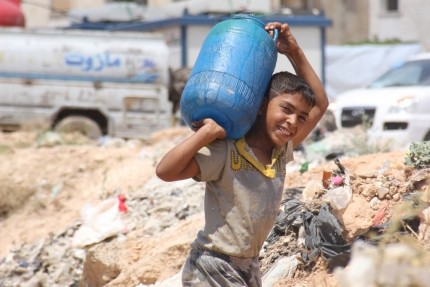
26 August 2015 – Amid the unremitting brutality of the war in Syria and a scorching summer heat wave, there is increasing evidence that parties to the conflict are using water to achieve military and political gains, warned the United Nations Children’s Fund (UNICEF).
“Clean water is both a basic need and a fundamental right, in Syria as it is anywhere else,” reminded Dr. Peter Salama, UNICEF Regional Director for the Middle East and North Africa in a press release. “Denying civilians access to water is a flagrant violation of the laws of war and must end.”
In recent months, up to five million people living in cities and communities across the country indeed have suffered the consequences of long and sometimes deliberate interruptions to their water supplies. That includes 2.3 million in Aleppo, 2.5 million in Damascus and 250,000 in Dera’a.
In the northern city of Aleppo, where fighting has crippled the main pumping station for months at a time, UNICEF has recorded 18 deliberate water cuts this year alone. Taps in some communities were left dry for up to 17 days in a row – and for over a month in some areas of the city.
With no water at home, children often take on the task of collecting water from street standpipes and collection points. One UNICEF engineer tells of a little girl he met who had stood in line for hours to fill two small water containers, only to realize that they were too heavy for her to carry. “She just burst into tears,” he recalled.
The unpredictability of warfare can make the process of fetching water dangerous, and even lethal, UNICEF underlined. In recent weeks, conflict cost the lives of at least three children while they were out collecting water in Aleppo.
Water shortages bring other consequences as well. Families in Damascus, Dera’a, Aleppo and other areas have to rely on dirty water from unregulated and unprotected groundwater sources, exposing children in particular to the risk of contracting diarrhoea, typhoid, hepatitis, and other diseases. In recent weeks, water prices have increased in Aleppo by up to 3,000 per cent, at a time when families are finding it harder than ever to make ends meet.
Syria’s water crisis has deepened along with the conflict; water availability is about half what it was before the crisis began in 2011. Ongoing violence and heavy clashes have caused severe damage to pipelines and other water infrastructure, and municipal workers are often unable to carry out the necessary repairs.
Frequent power cuts make it hard for technicians and engineers to pump water to civilians. Some areas receive only one hour of electricity a day and cuts lasting up to four days are reported. The misery is particularly acute for millions of displaced families who have to share limited water supplies in over-crowded shelters.
To add to the suffering, Syria – like much of the region – has been wilting under a heat wave said to be the harshest in decades. Temperatures in Aleppo have soared to above 40 degrees Celsius in recent weeks.
UNICEF called on parties to the conflict to take urgent steps to avert further suffering of civilians in Syria, by immediately halt water cuts and all actions that interrupt public water supplies, end all attacks on water facilities and infrastructure, and protect the safety of water engineers and other personnel who repair water supply installations.
IF YOU WOULD LIKE TO KNOW MORE ABOUT GAIN’S RELIEF EFFORTS, CLICK HERE.
(Article Source)
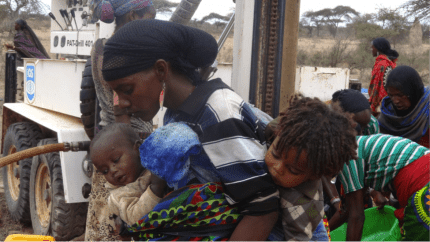
Hawa Guyo of Melbena, Ethiopia is a mother who always carried two children (one in the front and one on her back) as she walked walk eight hours a day to fetch water.
Upon arrival…the water was extremely dirty. People and animals used it at the same time. The donkeys and other animals urinated in the same pond that Hawa was using for drinking water. She explained that both her and her children were getting sick from the water-borne diseases. To add to this, since Hawa did not have money to get treated, they suffered a lot for years.
Today, Hawa shared that their life is totally different for three significant reasons.
Firstly, after the water well was provided in her village, they only walk five minutes to get water.
Secondly, Hawa gets clean water from the well and they’re not suffering from water-borne diseases anymore.
Lastly, the responsibility of fetching water used to fall on the little girls and women and because of that the girls were not able to go to school. Now, since they no longer walk eight hours to fetch water, they have time to go to school. Hawa said that she is now able to send her children to school.
Hawa urged that the drilling support for the Borana people should continue so that many people are protected from sickness and the little girls can get an education.
“Thank you for what has been done for me and my community,” shares Hawa.
WOULD YOU LIKE TO HELP OTHERS LIKE HAWA?
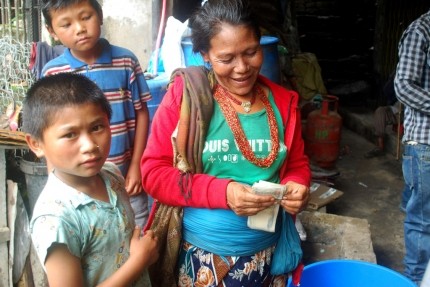
24 July 2015 – Three months after the first of the devastating earthquakes that hit Nepal, hundreds of thousands of survivors continue to require and rely on urgent humanitarian assistance, the top United Nations humanitarian official in the recovering country said today.
“The emergency is not over yet,” warned Jamie McGoldrick, the Humanitarian Coordinator in Nepal. “As long as humanitarian needs persist, relief agencies will continue to support the Government in addressing these vulnerabilities and ensuring the survival of communities affected.”
The cold and damp monsoon weather exposes those affected to further hazards and, together with customs delays, adds to the challenges aid agencies tackle daily. Shelter, food and livelihoods support, water and sanitation, medical and psychosocial care, and protection remain top priorities, he said.
In the last three months, the humanitarian community provided shelter assistance to 340,000 families, distributed food to over 2 million people and provided safe drinking water to some 2.5 million survivors in 14 most-affected districts, points out a press release issued by the UN Office for the Coordination of Humanitarian Affairs (OCHA).
Hundreds of thousands of children continue to benefit from education and psychosocial support. Almost all of health facilities also restored use of cash programming, which proved to be indispensable in achieving these goals and overcoming the topography challenge.
“I am heartened and encouraged by the dedication of the responders: the Government, the many volunteers, my colleagues. Together, we achieved a lot,” stated Mr. McGoldrick. “But we must continue.”
Basic shelter will continue to be provided to families who lost their homes, as more-durable shelter solutions are sought and implemented, underscore the press release. Aid agencies aim to assist more than 1.4 million people with food and another 1 million people with livelihoods support, and to provide safe drinking water and sanitation to 2.5 million people.
Medical camp kits will continue to replace damaged health infrastructure and temporary learning spaces are intended for additional 270,000 children. The humanitarian community is also planning ahead, to ensure the most vulnerable are assisted beyond the monsoon and prepared to survive through the harsh and cold wintery conditions.
“We cannot fail the most vulnerable communities, people who count on us more than ever with the monsoon season underway and the winter fast-approaching” stressed Mr. McGoldrick. “The humanitarian community can and will deliver on its commitments, provided that we receive the right support.”
To date, only $210 million, or 50 per cent, were received against the $422 million humanitarian appeal. An additional $222 million in support to post-earthquakes relief was provided directly to the Government of Nepal on a bilateral and in-kind basis.
GAIN IS STILL PROVIDING AID TO PEOPLE IN NEPAL. IF YOU WOULD LIKE TO LEARN MORE ABOUT OUR EFFORTS, CLICK HERE.
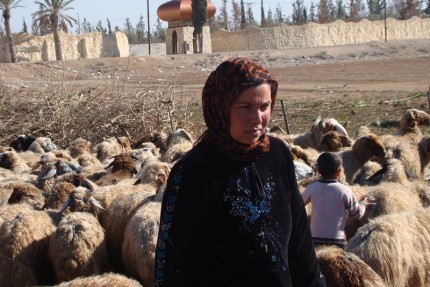
23 July 2015 – Syria’s food production in 2015 remains at 40 per cent below its pre-crisis levels, impacting the price of bread, which has spiralled by 87 per cent, and shrinking poultry production by half, according to a United Nations agency report released today that warns that “the risk of irreversible damage to the children is real, with tragic future consequences.”
“The evidence is clear: almost five years of conflict have destroyed the Syrian economy and the people’s ability to buy essentials like the food they need to survive,” said Arif Husain, chief economist of the UN World Food Programme (WFP).
The UN Food and Agriculture Organization (FAO) and the World Food Programme (WFP) said in their special joint report based on a crop and food security assessment mission to Syria that the 2015 wheat crop is expected to be better than the 2014 drought stricken harvest, but is still 40 per cent lower than pre-conflict production levels and “will not lead to significant improvements in the overall household food security situation.”
Some 9.8 million people in Syria are food insecure, with 6.8 million of these “severely” food insecure – a level of need that requires external food assistance, according to the report, which noted that since January this year alone, more than half a million people have been displaced.
“Although Syria’s current harvest is better than expected due to abundant rains, the country’s agriculture sector remains decimated by the conflict. Urgent donor support is needed to ensure farmers can meet the upcoming cereal planting season, beginning in October,” said Dominique Burgeon, Director of FAO’s Emergency and Rehabilitation Division.
The report said agricultural production continues to be impeded by shortages of fuel, farm labour and agricultural inputs, including seeds and fertilizers; high input costs and unreliable quality; as well as damages to irrigation systems and farming equipment.
Livestock production is also gravely affected by the conflict, the agencies said.
“The sector, once a major contributor to Syria’s domestic economy and to its external trade, has seen reductions of 30 per cent in cattle and 40 per cent in sheep and goats, while poultry, usually the most affordable source of protein in people’s diets has shrunk by 50 per cent,” according to the report. “The report also noted that the country’s veterinary service is rapidly running out of vaccines and routine drugs.”
And after being relatively stable in 2014, food prices began increasing sharply in early 2015 in the wake of lower government subsidies and exchange rate depreciation, the report noted.
“Critically, the price of bread has spiralled in the past year, increasing by up to 87 per cent in public bakeries,” it said.
The report said families were found to be spending more than half of their incomes on food and in some places such as Sweida, Aleppo and Hama this share is higher and has jumped to almost 80 per cent in Dara’a, one of the areas which have witnessed some of the most intensive fighting.
While an end to the conflict remains the main precondition for ensuring that people in Syria have adequate access to food, the FAO-WFP report recommends that in order to strengthen the resilience of affected communities, the establishment of village-based private seed production and distribution centres, promoting backyard vegetable and poultry production through distribution of improved seeds and chicks, as well as providing livestock vaccines and veterinary drugs.
“We worry about the continued displacement and its impact particularly on women and children,” said the WFP economist, Mr. Husain. “The risk of irreversible damage to the children is real, with tragic future consequences if this conflict lasts much longer.”
IF YOU WOULD LIKE TO KNOW MORE ABOUT GAIN’S RELIEF EFFORTS, CLICK HERE.
(Article Source)
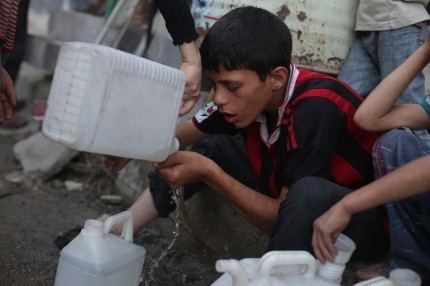
13 July 2015 – Syrian children are becoming increasingly vulnerable to water borne illnesses amid peaking summer temperatures and dwindling supplies of safe water, the United Nations Children’s Fund (UNICEF) warned today.
“The situation is alarming particularly for children who are susceptible to water borne diseases,” Hanaa Singer, UNICEF’s Representative in Syria reported in a press release. “With the crisis now in its fifth year, water has become even more scarce and unsafe, and poor hygiene conditions especially among the displaced communities are putting more children at severe risk.”
Since the beginning of 2015, said the UN agency, Syria has reported 105,886 cases of acute diarrhoea while also registering a sharp increase of Hepatitis A cases.
The situation is particularly dramatic in Deir-Ez-Zour, a city not far from Syria’s border with Iraq, where raw sewage has reportedly contaminated the Euphrates River from which the local population receives its water. As a result, UNICEF added, some 1,144 of typhoid cases have been reported.
“Since the beginning of the crisis, we’ve been working with a range of partners to support the vital water infrastructure on which some 15 million people in Syria depend,” Ms. Singer continued. “This includes drilling and equipping wells as alternative sources of water as well as supporting the local production and procurement of water treatment supplies.”
The conditions in Syria have steadily been deteriorating since the outbreak of the country’s conflict in March 2011.
The UN’s Office for the Coordination of Humanitarian Affairs (OCHA) has cautioned that some 12 million people in the Middle Eastern country today remain in need of humanitarian assistance – a twelve-fold increase since 2011. 7.6 million people have been displaced by the conflict and another 4.8 million people are in need of humanitarian assistance in hard to reach and besieged locations.
The humanitarian impact of the crisis is only further compounded by funding shortfalls which has seen wholesale cuts to the UN’s delivery of humanitarian aid – from food assistance to lifesaving health services.
IF YOU WOULD LIKE TO KNOW HOW WE ARE MEETING THE NEEDS OF SYRIANS, CLICK HERE.
(Source)
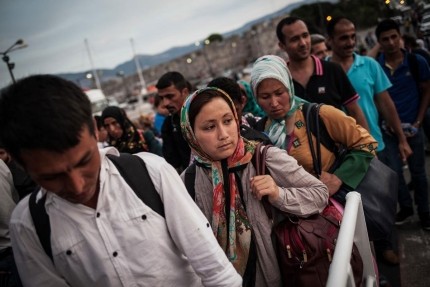
9 July 2015 – The exodus spawned by the four-year long Syrian conflict has now become the United Nations refugee agency’s largest crisis in almost a quarter of a century and risks deteriorating even further as fighting in the country shows no sign of abating.
In a news release issued earlier today, the Office of the UN High Commissioner for Refugees (UNHCR) confirmed the latest figures received from the field indicating that more than 4 million Syrian refugees have fled the Middle Eastern nation since hostilities began there in March 2011.
“This is the biggest refugee population from a single conflict in a generation,” lamented UN High Commissioner for Refugees António Guterres. “It is a population that deserves the support of the world but is instead living in dire conditions and sinking deeper into abject poverty.”
As it reaches the mid-point of its fifth year, the Syrian civil war has generated a steady outflow of refugees into neighbouring countries such as Lebanon, Turkey, Iraq and Jordan, burdening those countries’ infrastructures and leading to overcrowded settlements where many refugees struggle amid high unemployment and precarious services.
According to the latest data available, Turkey alone is host to over 1,800,000 registered Syrian refugees – more than any other in the world – with about 259,000 living in 23 camps set up and managed by the Government.
In addition, the numbers are only slated to increase amid intensified fighting across Syria, the UN refugee agency noted. Today’s 4 million milestone, in fact, comes barely 10 months since the total of three million was reached.
At the same time, however, life for Syrians in exile is becoming increasingly tough. The UN agency explained that some 86 per cent of refugees outside Jordanian resettlement camps live below the poverty line. In Lebanon, 55 per cent of refugees live in shelters considered to be “sub-standard.”
Meanwhile, in a recent report from the ground, the UN Children’s Fund (UNICEF) similarly warned that as the Syrian crisis has dramatically reduced family livelihood opportunities and impoverished millions of households in the region, children have been steadily pushed into the job market and are now being widely employed in harmful working conditions, risking serious damage to their health and wellbeing.
“Worsening conditions are driving growing numbers towards Europe and further afield, but the overwhelming majority remain in the region,” Mr. Guterres continued. “We cannot afford to let them and the communities hosting them slide further into desperation.”
While the conflict continues to push a steady outflow of Syrians across the region, the conditions of those trapped inside the country’s besieged cities remains equally dire.
The UN’s Office for the Coordination of Humanitarian Affairs (OCHA) has cautioned that some 12 million people in the Middle Eastern country today remain in need of humanitarian assistance – a twelve-fold increase since 2011. 7.6 million people have been displaced by the conflict and another 4.8 million people are in need of humanitarian assistance in hard to reach and besieged locations.
The humanitarian impact of the crisis is only further compounded by funding shortfalls which has seen wholesale cuts to the UN’s delivery of humanitarian aid – from food assistance to lifesaving health services.
IF YOU WOULD LIKE TO KNOW ABOUT GAIN’S WORK IN SYRIA, CLICK HERE.
(Source)
WOMAN FINDS SPECIAL MEANING FROM WELL
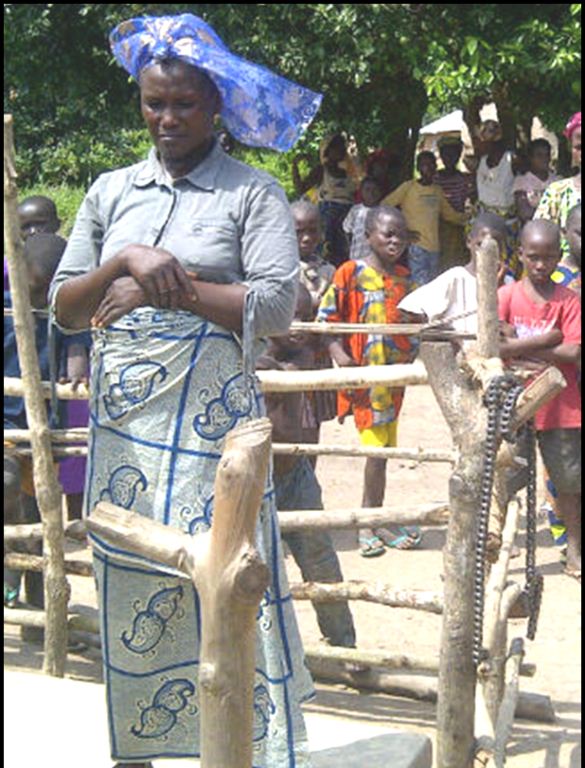
After travelling for eight hours to the village of Goro Bani in northern Benin, the GAiN team was greeted with dancing and singing.
The village’s jubilation was undeniable. The chief gave a speech and expressed how happy they all were. He shared how the women used to walk for hours and cross both the railway track and the main highway to get water from the filthy swamp. The chief explained how the journey was extremely dangerous and that the water was very dirty.
Corimoo, one of the most expressive dancers that day, then spoke to the team. She said that she believed the well was there because of her daughter. She explained that before GAiN provided the well, Corimoo and her daughter went out to fetch water at 2:00 am. one night. Upon arrival, there was a line up at the swamp. Each woman was waiting for the water to seep into a hole that they dug.
After some time, Corimoo finally filled the first bucket and sent her daughter home with it. Corimoo told her to bring the bucket back while she filled the second.
But, her daughter never made it home. She was killed crossing the highway; another innocent life was gone.
Today, the water well is in the middle of the village, so that people are just a few steps away from clean drinking water, eliminating any travel time and danger. Corimoo said she had no words to express her gratitude for the well.
“She didn’t need to. I personally felt it,” shares Dennis Fierbach, Director of Water Strategies. “I was tearing up.” Water has so much more meaning in Benin; water means security, it means dignity, it means health! As they say in Africa – “Water is Life”.
Fierbach reflects, “I’ve been back to Benin a few times since I met Corimoo. I will never forget her and the transformation that the water well brought to her village. I can truly see the difference that a well has made in people’s lives. I know that there are a lot more stories like Corimoo all over the country.”
CHILD’S FUTURE LOOKS DIFFERENT BECAUSE OF ONE WATER WELL
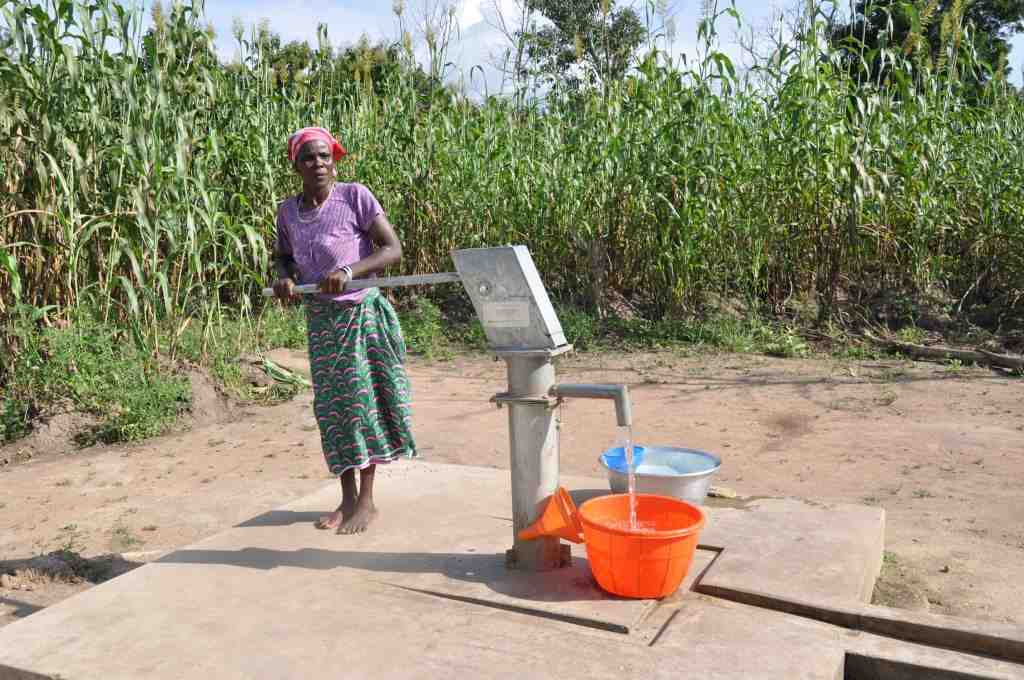
It sits stagnant, murky, and at times almost black. Garbage and waste float on its surface. Riddled with disease and parasites, it is the only source of water for thousands living in the remote regions of Benin, West Africa.
Women and children crowd around the uncovered opening of an old hand-dug well, vying to lower their buckets into the ground. They wait. Fights break out. Some women choose instead to travel at night to collect water, leaving them open to many dangers.
Lingering nearby the well is Debora. A grandmother in her late 50’s, she has grown weary from many hardships. She lowers her bucket into the well, fills it with the putrid liquid and pulls it back up to the surface.
With 45 pounds atop her head, she trudges homeward through six-foot tall grass and comes to a stop at a highway.
She waits as cars and trucks go by— often up to 30 minutes—before it is safe to pass. Others have been killed while crossing the same road.
After Debora’s two-kilometre trek, she arrives home to her children and precious 11-month old granddaughter, Naomi. The very water she takes pains to provide them may make them ill, and could ultimately cause their death. But, tomorrow, she will go again.
She has no other choice.
“The situation was so bad that I literally cried every night,” she says. “The stress of collecting water was causing problems in my marriage. I prayed to God to find a solution.”
By providing deep-capped water wells right in the heart of villages, Global Aid Network (GAiN) is helping to break the cycle of disease and death that devastates much of the developing world.
Women are able to care for their families. Children are going to school instead of travelling long distances to collect water. Agricultural production is increasing, community gardens are being grown for profit, businesses are being launched, and water-borne disease has been eliminated.
Since GAiN provided a well in Debora’s village, her life and the lives of her family members have been radically changed. She no longer spends her days travelling to collect dirty water. Now, she goes to the local well and fills her bucket with pure, fresh, disease-free water for her family. Her children and grandchildren no longer suffer from debilitating sickness.
When Debora looks at her granddaughter, she has hope for the future. Naomi will not walk the same road as her grandmother. She will have opportunities generations before her did not have. She will play. She will go to school. She will engage in her community.
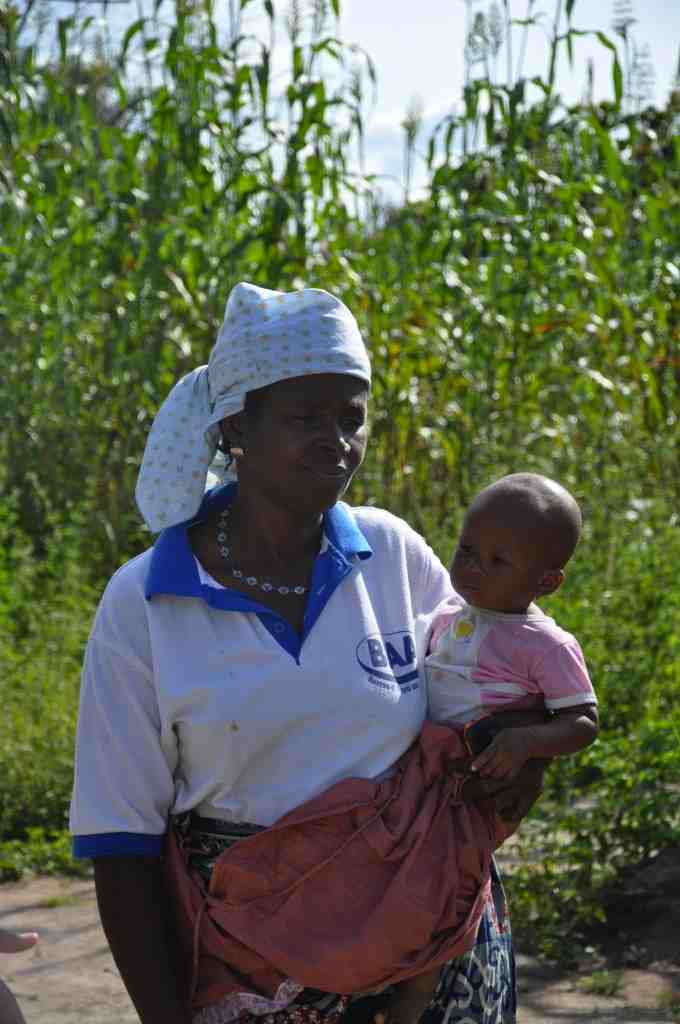
A REMINDER OF GOD’S GOODNESS FOUND IN A TANZANIAN VILLAGE
In September 2010, Bill Blaney, CEO & Director of Global Aid Network (GAiN) Canada, Ken Forbes, former Chief Development Officer of Power to Change, and Ken’s wife, Lisa, stood amazed in the village of Kikwetu, Tanzania while watching a long line of people filling their 45lb containers of disease-free water.
In awe of the sheer magnitude of people, the team was introduced to the chairman of the borehole committee. As Bill talked with him, the chairman shared that thousands of people came from surrounding villages to get their clean water in Kikwetu, resulting in approximately 4,000 people utilizing this one water well.
After casually talking to the chairman for 15 minutes, the man leaned over and nonchalantly said, “Would you like to meet my son?”
Bill agreed and the man walked over to his wife, who was standing in the line for water. He lifted his three-month old baby out of her arms and said, “You know…I so love what GAiN stands for; the work they do and the impact that they have. Because of what they have demonstrated to us, I have chosen to name my first son ‘Gain’. I gave him that name at birth, because every time I look at him I want to be reminded of the tremendous work that GAiN has done for my people. And when he hears his name “Gain”, he will know that is stands for both the goodness of the Lord and all the good things that one can do for people.”
The chairman continued to share that so many blessings had come to the village since GAiN had drilled the well on March 3, 2009. He had become a Christian, along with five others, through the JESUS Film that was shown to 327 people on June 15, 2009, several others in the village had made decisions to follow Christ through the church that was planted shortly after, and the village was better off in terms of health, hope and many other areas.
“I could not help but be humbled,” shares Bill. “I saw the direct impact of GAiN’s work. This was very significant! We came alongside a community of people and helped provide for their needs, both physically and spiritually.”
As the three left Kikwetu, they wereonce again reminded that it is not always about statistics, but it is about people. People such as ‘Gain’ that will forever be part of that village’s history as well as serve as a testimony of God’s transforming power, through GAiN, to others in their community and in their surrounding villages.
